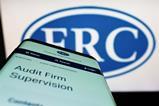It’s been a long “integrity journey” for multinational telecommunications giant Ericsson, according to the company’s Head of Compliance Global Affairs Alison Howell. Since settling with the DOJ over FCPA violations in 2019, the company has gone through a "business critical transformation," resulting in the end of its compliance monitorship, an accomplishment that should be recognized.

In 2019, the company agreed to pay more than $1 billion to settle violations of the Foreign Corrupt Practices Act (FCPA) and entered into a deferred prosecution agreement (DPA) with the Department of Justice (DOJ). The settlement included an independent compliance monitor.
In October 2021, it breached its obligations under its DPA by failing to provide certain documents and factual information. In February 2022, Ericsson admitted it found evidence of “corruption-related misconduct in Iraq.” A month later, the DOJ determined Ericsson breached the DPA a second time for “insufficient” disclosures.
The monitorship was originally set to run until June 2023 before being extended an additional year.
Ericsson Chief Compliance Officer Becky Rohr, who will speak at Compliance Week National in April 2025, was appointed to the post in March, bringing together investigations and compliance. In June, the company announced the monitorship had concluded after the monitor certified its anti-corruption program.
Howell joined the company in 2020 as head of allegation management and later took on the head of the monitor liaison office. She brought with her years of experience being a point of contact for a compliance monitor at her previous employer, Amsterdam-based telecommunications company VEON. That monitorship ended in 2019.
“It’s a drumbeat that doesn’t go away when the monitorship is over. We’re not going to have the same compliance program forever. It needs to evolve as the business itself evolves.”
– Alison Howell, Head of Compliance Global Affairs, Ericsson
She said that in both instances, the monitor took a very collaborative approach, with the most foundational aspects to building an effective compliance program including CEO and board buy-in, grassroots cultural transformation, robust global allegation management and investigations, and fostering a “speak-up culture.”
Ericsson is a matrixed organization with a presence in more than 180 countries, Howell said, so a “business critical transformation” took place that was led by the CEO and executive team. This included implementing cross-functional teams to strengthen business processes and extensive in-person training and monitoring in more than 20 countries.
“It’s a drumbeat that doesn’t go away when the monitorship is over,” she noted. “We’re not going to have the same compliance program forever. It needs to evolve as the business itself evolves.”
A large part of strengthening the company’s allegation management and investigations included building a tailored case management system to assess allegations and investigate, Howell said.
Through the case management system, the company could focus on patterns and trend-spotting, root-cause analysis, and risk visibility, according to Howell.
The company encouraged a “speak-up culture,” Howell said, by training employees on how to speak up and sending a strong message that the company will not tolerate retaliation. Mentorship was also a big driver, with the company’s Compliance Boost Program offering compliance training to employees with diverse expertise, including those in finance and technology.
Another avenue into driving engagement across the globe was the company’s grassroots Speak-Up Road Shows, which took Howell to places like Saudi Arabia and Guatemala.
“It was amazing to me how much feedback I got,” she said, adding that with the company's global presence, it's been a priority to have local compliance officers. “Having [a compliance officer] locally, that person is out there to advise the business, is available to people there, and is able to land the messages.”


















No comments yet